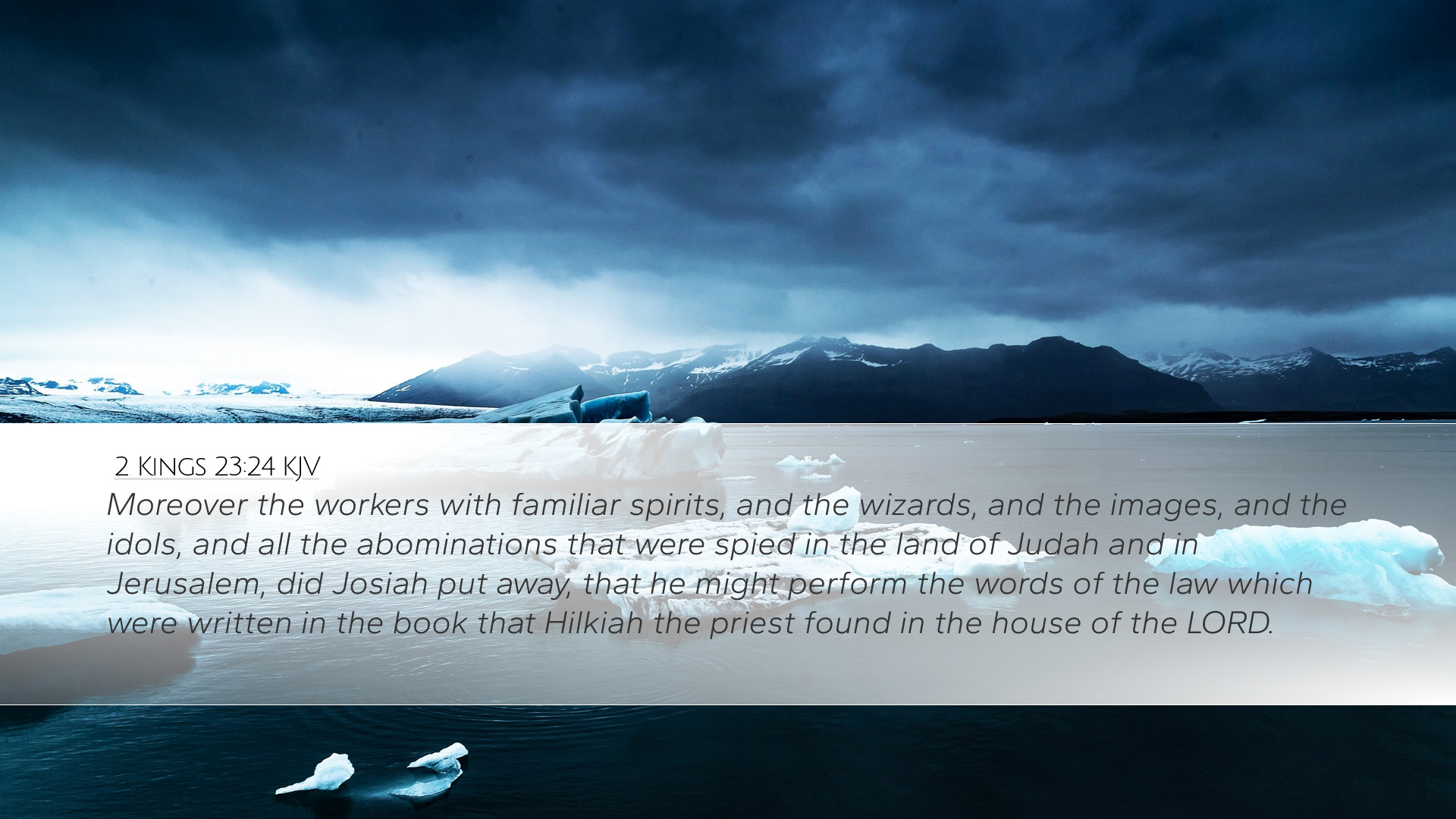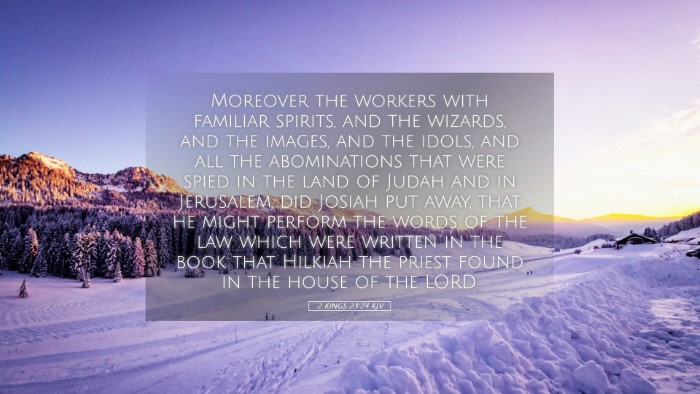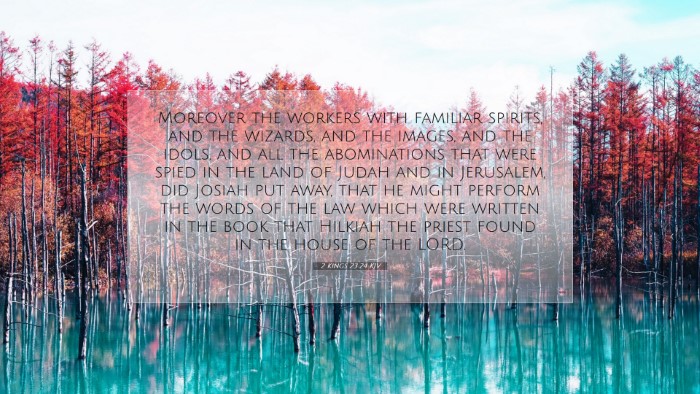Commentary on 2 Kings 23:24
Bible Verse: "Moreover, the workers with familiar spirits, and the wizards, and the images, and the idols, and all the abominations that were spied in the land of Judah and in Jerusalem, did Josiah put away, that he might perform the words of the law which were written in the book that Hilkiah the priest found in the house of the LORD."
Introduction
This verse marks a significant moment in the reign of King Josiah, who is remembered for his reforms in Judah that sought to revive true worship and eliminate pagan practices. The mention of "workers with familiar spirits," "wizards," and various idols highlights the depth of Israel’s spiritual corruption at the time. This commentary synthesizes insights from public domain works, particularly focusing on the moral and theological implications of Josiah's actions as they relate to the greater biblical narrative.
Historical Context
The historical backdrop of 2 Kings 23 indicates a period of great apostasy in Judah. King Manasseh’s reign had introduced a plethora of idolatrous practices that had distanced the people from the worship of Yahweh. Josiah’s discovery of the Book of the Law (likely Deuteronomy) precipitated a profound reformation. Scholars note that this event is central to understanding Josiah’s motives and actions.
Influence of the Book of the Law
The finding of the law, as noted in 2 Kings 22, acts as a catalyst for Josiah’s reform. Matthew Henry points out that the law revealed the seriousness of sin and the judgment that awaited the nation, thus emphasizing the need for repentance and correction.
- Moral Awakening: The law awakened a sense of guilt and urgency in Josiah, leading him to act decisively against idolatry.
- Restoration of Worship: Adam Clarke notes the importance of returning to the worship prescribed in the law, which included purging the land of illegitimate practices.
The Nature of Idolatry and Its Abominations
The verse lists various forms of idolatry, a practice that was not merely a deviation from religious norms but an affront to divine governance. Albert Barnes elaborates on the types of practices condemned:
- Familiar Spirits: Refers to necromancy and the consultation of the dead, which God explicitly forbids (Deuteronomy 18:10-12).
- Wizards: These practitioners likely included those who used charms and spells, deceiving the populace with false promises.
- Idols: Statues or images created for worship, representing various deities, were prevalent from foreign cultures and epitomized the spiritual infidelity of Judah.
Josiah's Actions
Josiah’s reforms were central to his legacy as a righteous king. His determination to “put away” the abominations signifies not only a physical removal but a desire to cleanse the heart of the nation:
- Active Engagement: Josiah didn’t merely pass laws; he actively sought out those involved in pagan practices to restore proper worship.
- Leadership by Example: Clarke emphasizes how Josiah led the people by example, demonstrating the seriousness of following Yahweh’s commands.
Spiritual Implications
The actions taken by Josiah resonate beyond his immediate context. They speak to the continuous need for reform and regeneration within the faith community:
- Repentance: The necessity for national and personal repentance is highlighted throughout both the Old and New Testaments. Josiah’s actions serve as a template for how one may return to God after falling away.
- Purity in Worship: True worship requires the elimination of all forms of compromise with the world, a recurring theme in biblical theology.
Lessons for Today
Josiah's determination to eradicate idolatry calls believers today to introspection regarding the idols present in contemporary society:
- Identifying Idols: Pastors and theologians must call congregations to recognize modern-day idols—whether they be materialism, power, or even misplaced security in doctrinal correctness—over faithfulness to God.
- Courageous Reform: Just as Josiah acted courageously, churches today need leaders who are committed to biblical truth and are willing to confront error in their midst.
- Community Response: It is not enough for leaders to act alone; a collective response from the body of Christ is necessary to restore the church to its rightful place of worship.
Conclusion
2 Kings 23:24 paints a vivid picture of the profound transformation initiated by King Josiah in the life of Judah. His zealous action against idolatry serves both as an historical account and a timeless challenge to all believers. The verse illustrates the crucial interplay between the recognition of sin, the pursuit of holiness, and the communal aspects of reforming worship. Drawing from the insights of Matthew Henry, Albert Barnes, and Adam Clarke, we are encouraged to seek the purity of worship and the eradication of anything that hinders our relationship with God.


